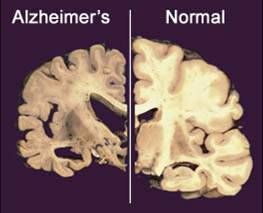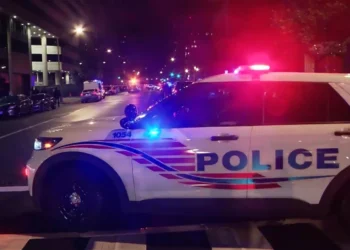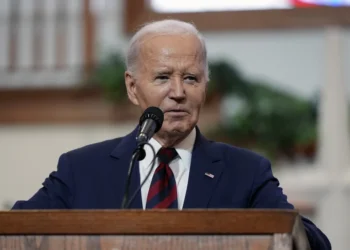Many states have adopted voter identification to bolster election security. But seven states which claim to check voter ID have loopholes, allowing residents to avoid the requirement by simply filling out paperwork.
In Connecticut, Delaware, Idaho, Iowa, Michigan, South Dakota, and Virginia, officials “request” voter ID, according to the National Conference of State Legislatures. If someone lacks ID while voting in person, however, they must simply sign forms claiming to be the voter, and officials will let them cast a ballot.
In recent months, noncitizen voting has drawn increasing scrutiny nationwide. The Department of Justice is investigating numerous cases of noncitizen voting, as The Federalist previously reported. In Oregon — which has no ID requirement — officials found more than 1,700 noncitizens on the rolls and registered more than 54,000 of “unknown citizenship.” Hypothetically, in the seven states mentioned above, bad actors could falsely claim others’ identity to vote on their behalf.
Connecticut
In Connecticut, an ID is “[r]equested” but a photo is “[n]ot [r]equired,” according to NCSL. If someone does not have one, they can simply fill out a form claiming to be the voter.
State election law says voters can show a social security card or “any other preprinted form of identification which shows the elector’s name and either the elector’s address, signature or photograph.” If a voter does not have one, he or she must simply fill out a form with the elector’s name, “residential address and date of birth,” and sign “under penalty of false statement” that he or she is the elector before casting a ballot.
Connecticut has been home to multiple election fraud investigations. In 2023, a judge overturned the Bridgeport mayoral election after evidence surfaced that the incumbent won due to election tampering. And in January, police arrested a state bureaucrat for changing Republican voter registrations to Democrat.
Delaware
Like Connecticut, an ID is “[r]equested” but a photo is “[n]ot [r]equired” to vote in Delaware. If voters don’t have one, they can simply sign an affidavit.
Voters can show forms of ID including photo IDs, utility bills, paychecks, or “[a]ny government document with voter’s name and address,” according to NCSL. But state election law says if a voter “does not have proof of identity with them, the voter shall sign an affidavit of affirmation that the voter is the person listed on the election district record” before casting his or her ballot.
Courts have repeatedly struck down the state’s Democrat-backed voting laws. In 2022, the state supreme court found same-day registration and no-excuse mail-in voting violated Delaware’s constitution, as The Federalist previously reported. Last year, the state superior court found early voting and “permanent absentee” voting policies were also unconstitutional.
Idaho
In Idaho, a “[p]hoto ID” is “requested.” But if someone does not have the appropriate ID, they must simply sign an affidavit claiming to be the voter. Idaho citizens voted to officially ban noncitizen voting in November.
Officials ask voters for documents like a driver’s license, passport, state ID, federal ID, tribal ID, or concealed carry license, according to NCSL. But state law also says voters can show a “personal identification affidavit.” While anyone who “knowingly provides false, erroneous or inaccurate information” is “guilty of a felony,” according to Idaho law, this affidavit simply requires the voter’s name, address, and signature prior to voting.
Iowa
An ID is “[r]equested” in Iowa, though a photo is “[n]ot [r]equired,” according to NCSL. If voters don’t have an ID, they can simply have another person attest to their identity. Iowa voters approved a measure in November to help ensure only U.S. citizens vote in elections.
Officially accepted forms of ID include a state driver’s license, a “nonoperator’s” ID, passport, “military card,” veteran’s ID, or a current “voter registration card.” If a voter cannot show one of these, he or she can have another registered voter from the same precinct attest to their identity.
“Both you and the attester will be required to sign an oath swearing the statements being made are true,” according to the Iowa secretary of state’s office. Falsely attesting — or having someone else falsely attest for oneself — is considered “registration fraud.”
Michigan
A “[p]hoto ID” is “requested” to vote in Michigan. But “[i]f ID is not presented, the voter signs an affidavit and votes on a regular ballot,” according to NCSL.
Voters can show a state ID, driver’s license, federal ID, passport, military ID, tribal ID, or student ID before casting their ballot, according to the secretary of state’s office. As The Federalist reported at the time, a Chinese national used a student ID to vote in November’s election.
Voters without ID, however, can simply sign an affidavit and — according to state law — “be allowed to vote as otherwise provided …”
Democrat Secretary of State Jocelyn Benson found 15 likely noncitizens voted statewide in November’s election, but downplayed it as “rare,” as The Federalist previously reported. Democrat Gov. Gretchen Whitmer also signed a law taking effect in June, which will empower Benson’s office to automatically offer voter registration to anyone unless they prove noncitizenship.
South Dakota
Similarly to Michigan, a “[p]hoto ID” is “requested” to vote in South Dakota. If a voter does not have this, however, he or she may simply sign an affidavit.
State election law says voters may provide documents like a driver’s license, state ID, a federal government photo ID or passport, a tribal photo ID, or a student photo ID. But if they do not have one, they can — under the “penalty of perjury” — fill out an affidavit with a name, address, and signature to cast a ballot.
Ahead of November’s election, South Dakota removed 273 noncitizens from the voter rolls, as The Federalist previously reported.
Virginia
An ID is “[r]equested” to vote in Virginia, though a photo is “[n]ot [r]equired,” according to NCSL. If a voter doesn’t show ID, they can sign “a statement affirming their identity” then “cast a regular ballot.”
Voters can show “voter confirmation documents” such as a valid passport, a state or government license or ID, a valid student ID, an employee ID, a current utility bill, bank statement, government check, paycheck, or “other government document” with one’s “name and address,” according to state law. If one does not have these forms of ID, however, he can “be allowed to vote after signing a statement, subject to felony penalties for false statements … that he is the named registered voter he claims to be.”
After Republican Gov. Glenn Youngkin removed more than 6,300 noncitizens from Virginia’s voter rolls last year, former President Joe Biden’s Department of Justice filed a lawsuit to keep them registered, as The Federalist reported at the time. Also last year, state Democrats tried to install provisions in the budget to prevent election audits.
While many other states allow provisional voting in person without an ID, they incorporate other safeguards like having officials certify attestations, verify signatures, and allow voters to show ID after the fact. Legacy media constantly claim noncitizen voting never happens. But these loopholes and abundant examples across the country suggest otherwise.
Logan Washburn is a staff writer covering election integrity. He is a spring 2025 fellow of The College Fix. He graduated from Hillsdale College, served as Christopher Rufo’s editorial assistant, and has bylines in The Wall Street Journal, The Tennessean, and The Daily Caller. Logan is from Central Oregon but now lives in rural Michigan.

















